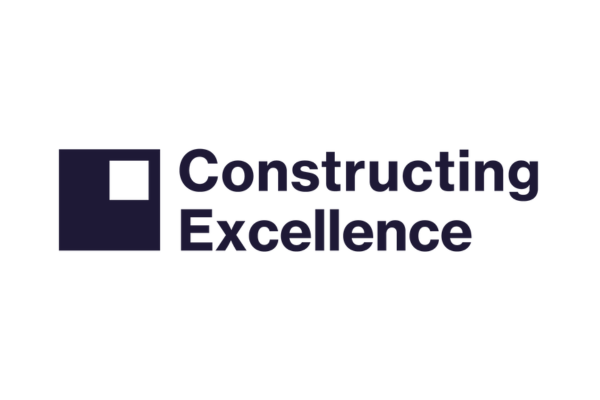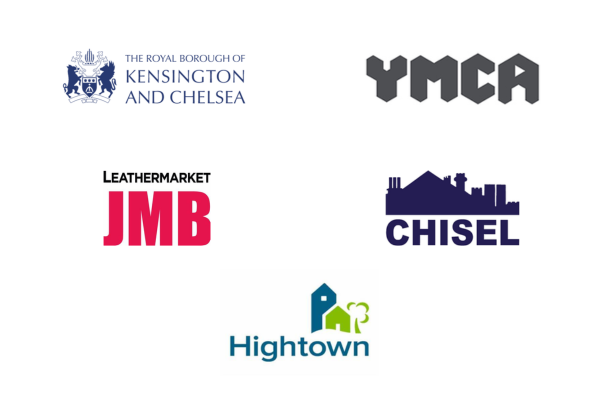Since the publication of Dr David Mosey’s ‘Constructing the Gold Standard’ we’ve committed to adapting its principles and supporting our network to do the same. This month we’re focusing on the importance of pipeline information and how understanding this upfront, for frameworks and for other contract procurements, can facilitate better outcomes.
The Construction Playbook explains that ‘pipelines of work are essential for frameworks to drive strategic planning, continuous improvement and the delivery of better, safer, faster and greener project outcomes. Lack of visibility of prospective work does not offer clarity or inspire confidence and it will not attract supplier commitments.’ Here we’ll hear from contractors and customers on their understanding and approach to publishing pipeline data – as well as what we’re doing at SEC to deliver better frameworks with this in mind.

A contractor’s perspective – why is pipeline information important?
We know that for contractors, bidding for tenders and frameworks takes time and costs money – especially in the current climate with supply chain pressures and increased demand. This means that they’re more likely to take a stronger view on what they will (and won’t) bid for. This is where pipeline information becomes important.
Many contractors will not bid for a framework that does not offer a pipeline of work with associated values. This is because they’re unable to understand what future work they’ll be able to tender for if successful. In the long run this lack of clarity reduces the contractor’s ability to plan and the customers’ ability to collaborate.
We caught up with Tyron Stalberg, Bid Director at VINCI Facilities on his views –
“Bidding in itself is a costly and time-consuming exercise. Where frameworks offer a pipeline, it justifies both the expense of bidding and [suggests] that the framework provider is having meaningful discussions with clients about future opportunities. This is attractive to contractors too. Once a pipeline is made available, it enables a soft market engagement process where frameworks (and their clients) can engage with stakeholders to shape the related tender process. This can manage out risks and make the procurement exercise more attractive…From a contractor point of view, the publication of an accurate and dependable pipeline is a clear ‘gold standard’ attribute. If it is then used to enable early stakeholder engagement process then another gold standard recommendation is met. I hold a really strong view that gold standard frameworks can pull the market together (clients, consultants, contractors and subcontractors) to discuss market challenges, to share best practice and to define models where risks are shared and where we create win/win/win outcomes for all the stakeholders.”
How are customers reacting to the change?
We’re committed to taking a gold standard approach in all that we do – and we want to offer attractive frameworks that customers want to use, and suppliers want to be a part of. Part of this is promoting long term project relationships – which can reduce waste in time and money spent on multiple procurements which could have been streamlined. In doing this, though, we are reliant on customers to provide essential pipeline detail to maximise those efficiencies and benefits.
Antony Silk, Director of Procurement at Southern Housing recognises how important this is in bringing value to their projects –
“We support transparency and early conversations for our procurement projects and welcome such conversations with framework providers. We acknowledge the requirement to publish pipeline information and are currently able to share up to 18 months ahead. We recognise the benefits of making pipeline detail visible and are keen to promote this to facilitate procurement project design and agreement with internal clients to achieve desired outcomes. We are mindful in all of this that in publishing such detail we offer more information to both suppliers and framework providers, and we will therefore remain accountable for the reliability and accuracy of such information.”
What have we at SEC been doing to support?
We’ve been establishing pipeline detail with our customers and continue to do so through establishing closer working relationships and shared intelligence. Upcoming changes to procurement regulations will support this, making it a statutory requirement for our customers to publish their pipeline information on a regular basis.
So, what are the regulation changes?
From April 2023, if a contracting authority anticipates that in the coming financial year it will need to procure works, services and supply contracts with a combined value of more than £100 million it must publish a “pipeline notice” on the UK Find a Tender Service within 56 days of the start of the financial year. The pipeline notice must set out specified information about any contract with an estimated value of more than £2 million that the contracting authority intends to publish a tender advert for in the 18 month period following the start of the financial year.
A financial year, for this purpose, is the twelve month period from 1 April to 31 March. Further details of what needs be included in the pipeline notices will be set out in the regulations issued by the Government in the coming months.
If you’ve any questions or would like to discuss how we can help, please contact our Partnerships Manager Louise Free – louise.free@southeastconsortium.org.uk / 0208 036 0004.
Interested in learning more about Constructing the Gold Standard? We’re publishing regular news posts on the report along with factsheets for our network. View them here – Constructing the Gold Standard – South East Consortium
Alternatively, subscribe to our email newsletters here.





